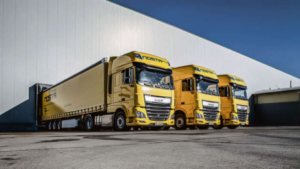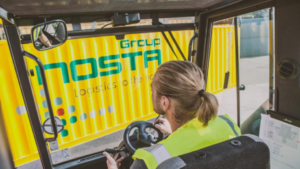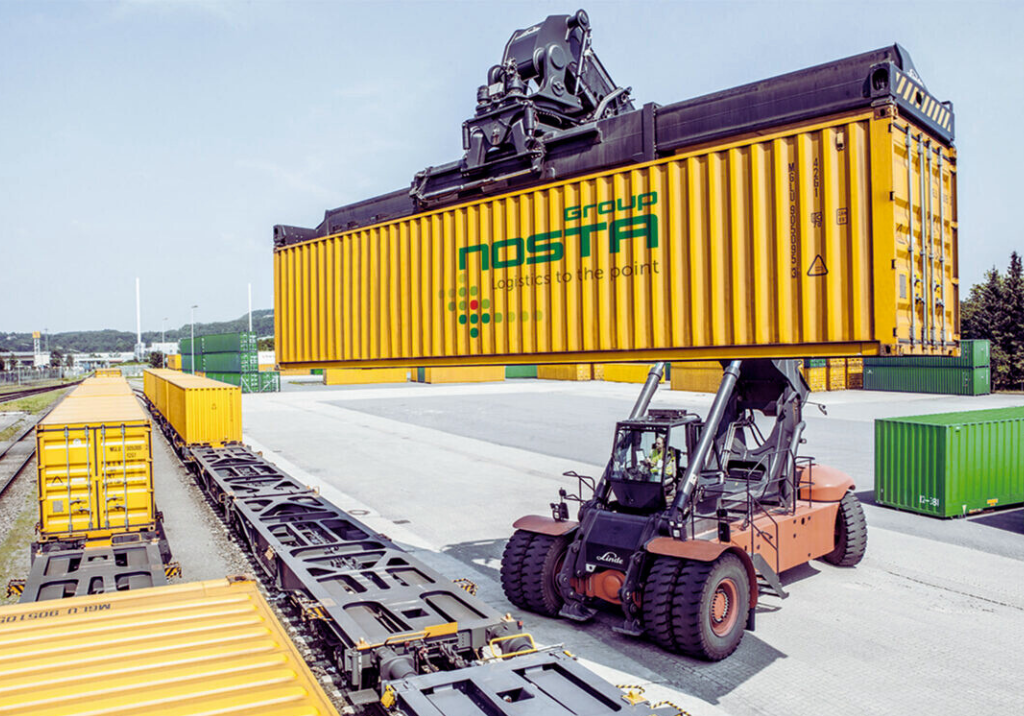“We do not want our carbon footprint to be a marketing figure of which nobody knows exactly how it has been composed. We want to be able to show transparently where NOSTA stands and feel comfortable communicating the data because we know that it is based on facts. That’s why it’s important for us to work with an accredited partner who supports us with data management and calculates CO2 emissions in accordance with international standards.”
Jonas Kiwitt, Sustainability Manager, NOSTA
Summary
✓ Comprehensive data management across various systems and departments
Merging thousands of generated data points that are scattered across various business areas and systems, such as multiple transport management systems (TMS) for different transport modes.
✓ Improved data quality and completeness
Regular “data clarification reports” to outline inconsistencies and room for improvement in the dataset. Enhanced completeness of the emissions data, facilitating efficient sustainability reporting, auditing, and tender processes.
✓ New business and stronger customer relations
Strengthened ties with existing customers and acquiring new ones by providing accurate emissions data and CO2 reporting.
About NOSTA
The NOSTA group is a distinguished family-run enterprise  that has been at the forefront of full-service logistics since its establishment in 1978. Headquartered in Osnabrück, the company has expanded its footprint to encompass more than 40 locations worldwide. With a dedicated team of over 800 employees, NOSTA provides logistics services along the entire value chain, including road, rail, sea, and air.
that has been at the forefront of full-service logistics since its establishment in 1978. Headquartered in Osnabrück, the company has expanded its footprint to encompass more than 40 locations worldwide. With a dedicated team of over 800 employees, NOSTA provides logistics services along the entire value chain, including road, rail, sea, and air.
The company not only offers freight transportation but is also one of the leading providers in the areas of warehousing, contract logistics, e-commerce, and logistics consulting. With a fleet of over 450 vehicles, consisting of 50 own trucks and access to 400 trucks via a strong network of national and international partners, NOSTA offers a diverse range of road services, including Europe-wide refrigerated transports. With its combined traffic terminal (KV Terminal), comprising a 630-meter track system and an open space area of 8,000 m², the company offers optimum conditions for handling and storing containers and ensures fast transshipment from rail and road. With its sea and air team, NOSTA realizes tailor-made solutions for international goods traffic, including sea freight and air cargo services as well as customs clearance.
Challenges
Implementing measurable actions towards sustainability
In 2021, NOSTA set up a dedicated Sustainable Solutions department for identifying and implementing actions for making the company more sustainable. Led by Jonas Kiwitt and Madeleine Larbus, a variety of potential measures were discussed, ranging from recyclable water bottles in meeting rooms to optimizing routes and modes of transport and expanding the fleet of vehicles. Ultimately, it became clear that for an impactful sustainability strategy, actions above all had to be measurable and that a baseline was needed to define where the company stands. Therefore, a consistent database as well as clear processes for managing and monitoring the progress had to be implemented.
Managing data of a diverse range of business systems
As a full-service logistics provider, NOSTA handles its transports multimodally – from road to rail, by ship or air freight – and works with a large number of subcontractors. In addition, full truck loads and part loads are carried out for road transport, as well as express transportation of sensitive cargo. NOSTA also handles contract logistics and e-commerce, including warehousing services. This diverse range of business operations increases the complexity of gaining transparency over the company’s own emission values. It leads to thousands of generated data points that are scattered across different departments and systems which need to be merged. Before NOSTA’s transport and logistics emissions could be calculated, the major issue of data management had to be dealt with.
Establishing a sufficient data basis for precise emissions calculation
One of the most important aspects in gaining CO2 transparency for NOSTA was establishing a solid data basis that allows for precise emissions calculation as well as establishing a process for maintaining data quality.
Being one step ahead for CSR reporting requirements, audits and tenders
Corporate Sustainability Responsibility (CSR) requirements and audits are increasing and with it the need and benefit of being able to provide detailed emissions data. Furthermore, CO2 transparency increasingly provides a competitive advantage for tender processes:
“In some cases, preliminary calculations are requested that we can prepare using valid data. Sustainability is not yet the main prerequisite for winning a contract, but it definitely is a plus.”
Jonas Kiwitt, Sustainability Manager, NOSTA
Actions: the collaboration between NOSTA and shipzero
Data integration and maintenance
NOSTA’s transport data from land, air and sea freight has been integrated into the shipzero platform and is constantly being updated to include the latest orders. Via interfaces from transport management and other logistics information systems, shipzero transfers the data for all processes such as orders or routings into the data platform. Once the data is validated, it gets converted into CO2 emission values. Through harmonizing the transport data with the order information, emission reports can be created for customers at shipment level.
Enhanced data quality through guided review processes
Through shipzero’s data clarification reports, NOSTA regularly receives a detailed overview of the quality of its data, highlighting inconsistencies, such as incorrect distances, excessive weights, or lacking information of the place of departure or arrival. Especially in the Road segment, NOSTA has been able to continuously optimize its own data structure, making the data input and data collection stage more complete and accurate – a benefit for the overall corporate data landscape, not just for calculating emissions.
Efficient and accessible CO2 reporting
With just a few clicks, NOSTA is able to download detailed emissions reports from shipzero.
“The ease of use of the data platform and the clarity of the dashboards were exactly what we were looking for. We no longer have to work with confusing Excel spreadsheets but can quickly access the information we need thanks to the simple visual display and filtering functions. This reduces the internal workload enormously.”
Jonas Kiwitt, Sustainability Manager, NOSTA
The interest in emissions data is growing, with a wide range of NOSTA departments requesting according insights. The Sustainable Solutions department can now make relevant data from the shipzero platform available to other departments and support them in addressing their sustainability issues. Having such detailed insights into NOSTA’s emissions readily available also prepares the company for sustainability audits and reporting requirements such as those brought forward in the CSRD.
Growing demand and customer retention
More and more customers show interest in NOSTA’s sustainability efforts. Therefore, the logistics provider wants to be prepared and is using shipzero to address this growing demand for their transport’s emission data. Especially the sales and dispositions teams regularly submit requests to share emissions data with NOSTA’s customers and partners. According reports can now easily be downloaded from the shipzero platform and provided to third parties.
“We are already noticing that the provision of emissions data is becoming increasingly relevant and that we can not only strengthen our ties with existing customers, but also win new orders,”
says Jonas Kiwitt.
Outlook and next steps
CO2 transparency is gradually becoming a reality at the NOSTA Group. Within a few months time, the company has managed to lift its data quality to a significantly higher level and is bringing more transparency to various business areas. Furthermore, NOSTA is planning to integrate warehouse logistics into the shipzero platform, in addition to the data from road, sea and air transportation that is already being analyzed. The aim is to enable NOSTA’s Sustainable Solutions department to report on the entire corporate carbon footprint (CCF) from a single source without having to rely on multiple providers.
 Through gaining such a detailed understanding of NOSTA’s emissions data, the company is laying the groundwork for targeted decarbonization projects. The processing of transport and logistics data in shipzero allows for a data-based determination of reduction potentials. For example, for routes, combined transport, or the warehouse area. While NOSTA currently focusses on diving even deeper into understanding its own emissions, the longer-term goal is clear: to gradually reduce emissions and the company’s carbon footprint.
Through gaining such a detailed understanding of NOSTA’s emissions data, the company is laying the groundwork for targeted decarbonization projects. The processing of transport and logistics data in shipzero allows for a data-based determination of reduction potentials. For example, for routes, combined transport, or the warehouse area. While NOSTA currently focusses on diving even deeper into understanding its own emissions, the longer-term goal is clear: to gradually reduce emissions and the company’s carbon footprint.



